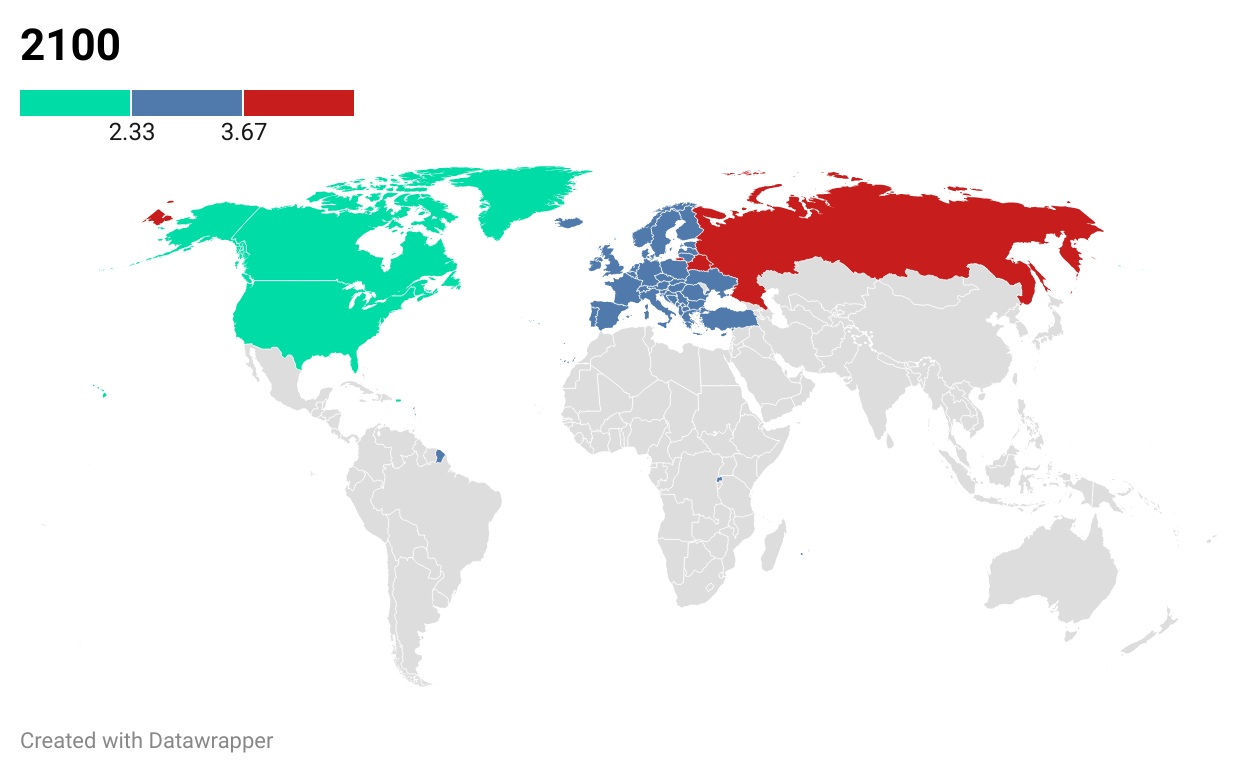Opinion: A possible geopolitical endgame in a world with rapid climate change
We witness the formation of a new world order albeit a fragile one, threatened by climate change.
In his controversial statements, Trump has suggested a willingness to consider military force for territorial acquisitions like Greenland and the Panama Canal, while dismissing the value of critical trade relations with Canada, which has raised eyebrows about his views on U.S. foreign policy and economic interdependence.
Territorial U.S. expansion – driven by climate change?
Trump keeps floating the idea that Canada should join the United States as the 51st state, saying Tuesday he would not use military force to invade the country, which is home to more than 40 million people and is a founding NATO partner.
While Trump’s suggestion of Canada joining the U.S. may be viewed as a provocative political statement or a light-hearted comment, it overlooks the complex historical, cultural, and political ties that separate the two nations. Given Canada’s status as a sovereign nation with its own identity, government, and international relationships, particularly as a NATO ally, such a proposal is largely unrealistic and not grounded in contemporary political or diplomatic discourse.
Here’s why Trump’s pursuit of Greenland is really about the control over the Arctic
President Donald Trump’s renewed interest in acquiring Greenland has reignited discussions around U.S. territorial aspirations, though such ambitions have historically been met with skepticism and outright rejection from Denmark. Greenland, an autonomous territory of Denmark, holds strategic significance and rich natural resources, but the prospect of acquisition raises questions about international relations and self-determination. Despite Trump’s assertions, acquiring territory through purchase or negotiation remains a complex and contentious issue in modern diplomacy.
BBC: Trump first floated the prospect of buying the territory during his first term in 2019, and has said US control of Greenland is an “absolute necessity” for international security.
“I think the people want to be with us,” Trump said in the press room on board the presidential plane.
“I don’t really know what claim Denmark has to it, but it would be a very unfriendly act if they didn’t allow that to happen because it’s for the protection of the free world,” he added.
“I think Greenland we’ll get because it has to do with freedom of the world,” Trump continued.
“It has nothing to do with the United States other than that we’re the one that can provide the freedom. They can’t.”
Trump refused to rule out acquiring Greenland and the Panama Canal by military force and has said the U.S doesn’t need anything from Canada, including automobiles, lumber and dairy products.

The new world order map as some may envision it.
Russia’s interests
The endgame
Based on the actions of expansion and announcements, from the most powerful state leaders – one could argue that they see the climate crisis as an opportunity.
Why embracing climate change may result in collapse
Related
About the Author: CLIMATE STATE
POPULAR
COMMENTS
- The risk with the path to a hothouse Earth | Climate State on Climate Tipping Points Existential Threat to Our Life Support Systems
- Robert Schreib on Electricity generation prices may increase by as much as 50% if only based on coal and gas
- Robert Schreib on China made a historic commitment to reduce its emissions of greenhouse gases
- Lee Nikki on COP30: Climate Summit 2025 – Intro Climate Action Event
- Hollie Bailey on Leaders doubled down on fossil fuels after promising to reduce climate pollution
Oh sure, let’s just casually invade Canada and buy Greenland while we’re at it! Because who needs historical context or diplomatic relations when you can have a real estate empire, right?